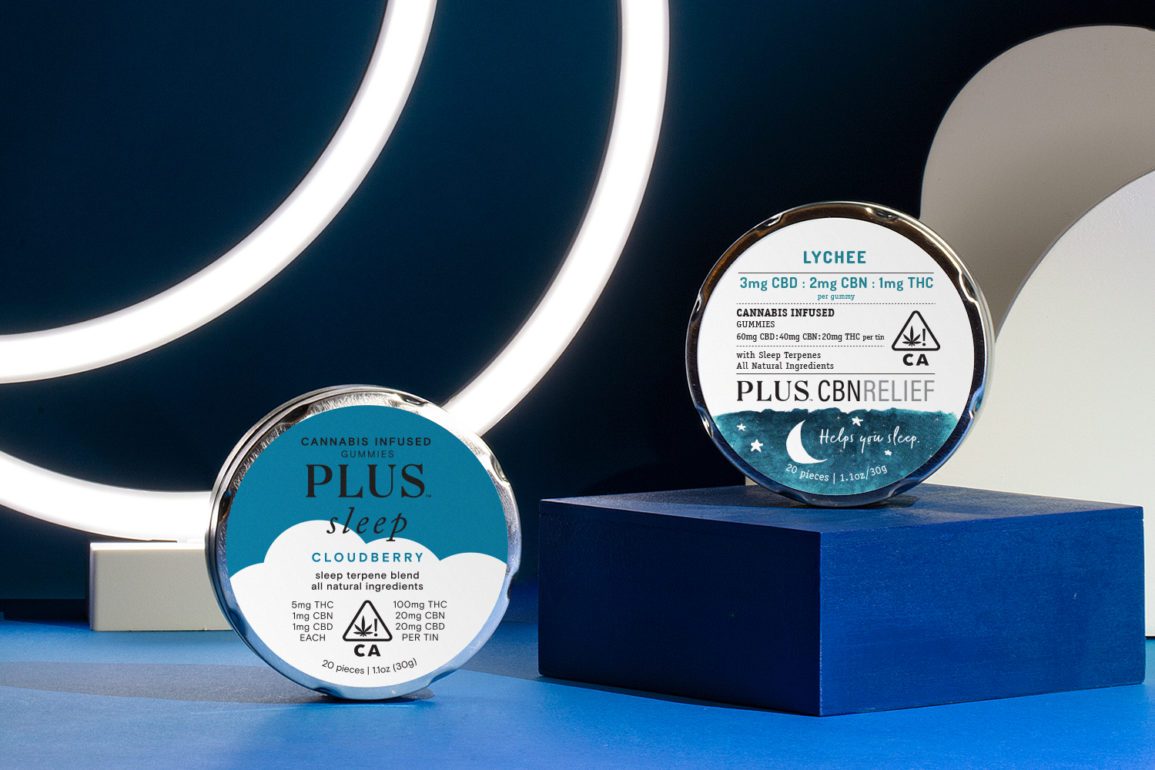One thing we know about California, they have some good cannabis. While some companies are known for their flower and cannabis oils, others are sought after for their vapes and edibles. Speaking of, PLUS, which is headquartered in San Mateo, CA, definitely ranks at one of the top spots for making some of the best edibles on the market.
Tapped into the science behind the plant, PLUS is a cannabis company founded by Jake Heimark in 2015. With a focus of offering products formulated to enhance your everyday, these edibles come in the form of a gummy — perhaps one of the most popular delivery methods of cannabis. PLUS boasts an array of flavors, doses, and THC:CBD ratios that give the cannabis community a chance to enjoy the strains they know and love.
We enjoy learning more from industry experts and today, the Chief Product Officer of PLUS Dr. Ari Mackler is here to offer us some information on cannabis (and priceless tips) from a scientific standpoint.

Can you give us an overview of Cannabis’ positive and negative effect on Neurotransmitters (mood, anxiety, stress)
Dr. Ari Mackler: Cannabis’ effects, from euphoria to relaxation to auditory/visual perceptions, are largely mediated by naturally occurring cannabinoid receptors (CB receptors) in the brain. The naturally occurring endocannabinoid anandamide molecule also binds to these receptors. Research into the endocannabinoid system has now documented its involvement in regulating pain, mood and emotions, memory, appetite, and cognition. When cannabis is consumed, the plant’s cannabinoids (e.g., Delta-9-tetrahydrocannabinol or THC) are able to interact with all of these brain mediated functions as well.
When THC binds to the CB1 receptors specifically, several intracellular enzymes are modified. For example, cAMP is reduced, which in turn decreases protein kinase A. Downstream, potassium and calcium channels in the brain are affected, and neurotransmitter release is slowed. The general excitability of the brain’s neural networks is reduced. On the other hand, within the “reward circuit”, more dopamine is released, most likely because dopaminergic neurons do not have CB1 receptors. However, dopaminergic neurons are inhibited by GABAergic neurons that do have them. GABA is an inhibitory neurotransmitter and low levels are linked to increased anxiety. So, when cannabis removes this GABA neuron inhibition, dopamine releasing neurons are activated.
Can you give us an overview of CBD/Cannabis’ positive and negative effect on Reproduction (egg cycles, sperm)
Although there is a decent amount of information supporting cannabis’ ability to increase libido (particularly in women), we know very little right now about CBD’s effects on fertility and pregnancy. Some research has suggested that smoking cannabis can decrease ovulation and IVF success. However, other research has found endocannabinoid receptors on sperm and in the female reproductive tract, suggesting that it may improve a sperm’s ability to fertilize an egg, boost ovarian function and follicle maturation. There is not yet strong evidence to support this theory.
With regard to men specifically, research has found that cannabis may have a negative impact on male fertility, including significant reduction (30%) in sperm concentration and count. Similarly, chronic use may diminish erectile function in men. This research, however, largely investigated smoking cannabis with THC, rather than other methods of consumption.
As with any supplement, be open with your doctor about your usage. They may even have research and guidance to help you in meeting your health and fertility goals. It’s important that if you decide to take CBD and you are trying to get pregnant, do your research on the product and ensure that it’s the highest quality. Until we know more, Reproductive Endocrinologists suggest a few things:
- Avoid smoking. We may not know about CBD, but THC has been shown to be detrimental to fertility in both men and women. Even vaping CBD oil likely bears more risks than benefits.
- Tell your doctor. They need to know all the supplements you’re taking, especially the cannabinoids.
- Start with a low dose. You don’t know how you will react to CBD or how it will impact your health. Start with a high quality, low dose form. Be cautious.
- Use only high quality products. Anyone can put CBD in an oil and call it a health supplement. You want high quality ingredients with no harmful additives.
Can you give us any biohack tips from the expert for maximizing CBD and Cannabis use for performance
- Choose only high-quality products — do your research.
- CBD isn’t just a miracle fix-all – rather, it can be a beneficial part of a healthy lifestyle that includes a good diet, exercise and regular sleep practices.
- Explore the combination of CBD with a small amount of THC or minor cannabinoids like CBN when seeking a good night’s sleep. These compounds work best in harmony; they occur together in nature for a reason!
- Start low and slowly increase the dose as appropriate to achieve your desired results.
Clinical advice on which type of cannabis products are good for what type of person (active vs inactive), and what type of purpose (stress vs sleep vs performance)
Too often, perceptions of cannabis users are that they live sedentary lifestyles; however, early research examining the relationship between cannabis use, sedentary behavior and physical activity led to conflicting findings. Newly published data is helping to further dispel this myth. These new studies now document that active cannabis users are not all that different from non-current users. In fact, frequent cannabis users appeared to engage in more physical activity than non-current users.
Why might this be the case? Well, science does suggest that the endocannabinoid system (cannabinoids that naturally occur in the body) is likely the chemical pathway that helps us enjoy daily work-outs, and is the driver behind what we’ve historically called the “runner’s high.” Enjoying your exercise is highly motivating. It has been hypothesized that consuming cannabis could disturb this endocannabinoid pathway, but this mechanism is not fully understood. Alternatively, it has been hypothesized that cannabis and cannabinoids may aid in recovery from pain and muscle soreness brought on by exercise and thus positively influencing us to engage in more exercise.
Researchers theorize that exercise/sports benefits may be had because of psychotropic enhancement or pain reduction. Good clinical data on cannabis’ ability to reduce pain and inflammation is limited, so additional research is needed to determine how or when cannabis and the cannabinoids can help our inner athlete.
Final Thoughts
When it comes to cannabis, there are a lot of options to choose from, however, that doesn’t mean there are a lot of good options. Without proper regulation, it can be hard to find a reputable cannabis company, which is why PLUS Products sticks out.
Providing rigorous testing (literally, they test their products internally, 8 times) and quality assurance, consumers can be confident they are getting the same dose each and every time. That said, add something beneficial to your self-care arsenal today and give them a go — just be sure to do so legally and responsibly.
